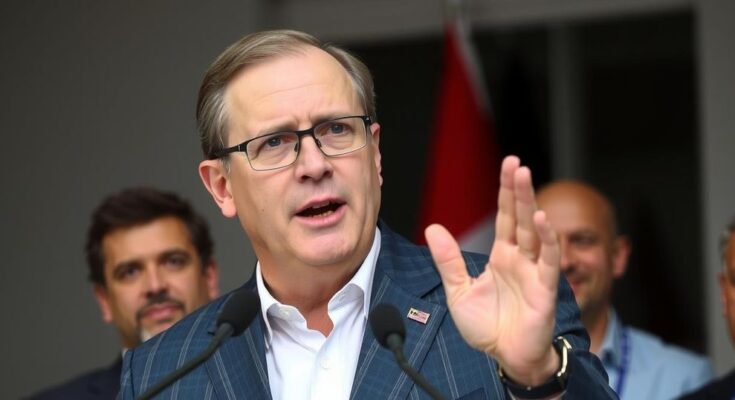Zoran Milanović, Croatia’s president, is seeking reelection against multiple candidates, including Dragan Primorac, endorsed by the ruling party. The election highlights Milanović’s controversial stance on Western military support for Ukraine and potential issues of corruption within the government. With about 1.6 million eligible voters, the outcome holds significant implications for Croatia’s political direction.
Croatia’s current president, Zoran Milanović, is seeking reelection this weekend amidst a competitive field of eight candidates, including Dragan Primorac, who is endorsed by the conservative ruling party. While Milanović has garnered popularity and has a history of serving as prime minister, he faces challenges with potential runoff elections likely due to the absence of a commanding vote. His campaign is characterized by a critical stance on Western military support for Ukraine, calling for Croatia to remain neutral in international conflicts despite NATO and EU affiliations.
As the election approaches, President Milanović’s contentious relationship with political rivals, particularly Prime Minister Andrej Plenković, has intensified, underlining the polarized nature of Croatian politics. Primorac aims to present himself as a moderate choice focusing on unity, whereas Milanović’s presidency is seen as divisive. Campaign dynamics have also been impacted by ongoing corruption scandals tied to the ruling party, adding a complex layer to the electoral contest. Though the president’s role is largely ceremonial, the elected president wields significant political authority and oversees military command, emphasizing the importance of this electoral outcome on Croatia’s future political landscape.
Rounding out the competition, Marija Selak Raspudić, a conservative independent candidate, has been polling third and may present a noteworthy contender should she advance to the runoff election. Her focus on pressing socio-economic issues resonates with voters, while Ivana Kekin, representing the left-green movement, emphasizes youthful representation in politics. In contrast, lesser-known candidates are unlikely to affect the electoral outcome significantly. With about 1.6 million eligible voters participating, the election’s results will not only influence Croatia’s political fabric but also reflect the citizenry’s broader aspirations.
Zoran Milanović, Croatia’s president, is actively campaigning for another term amid a challenging political landscape characterized by multiple contenders vying for support. His leadership has been marked by controversial views, particularly regarding Croatia’s position on global conflicts, specifically its stance on the war in Ukraine. As a member of NATO and the EU, these issues resonate with different factions within Croatian society, complicating the electoral dynamics. Milanović previously served as prime minister, which has positioned him favorably in public perception, although his confrontational approach towards his political opponents, notably Prime Minister Andrej Plenković, has drawn both support and criticism. The upcoming election is poised to influence national policies and the governance approach in Croatia considerably, with potential ramifications for its European Union affiliations and domestic political stability.
In summary, the reelection bid of President Zoran Milanović represents a critical juncture in Croatian politics, as he navigates a landscape filled with dissenting voices and rival candidates. Despite his popularity and prior political experience, the likelihood of a runoff election emphasizes the competitive nature of this election cycle. The issues of military involvement, corruption, and social unity will significantly shape the narratives leading up to the election, making the outcome pivotal for the future direction of Croatia’s governance and international relations.
Original Source: apnews.com




